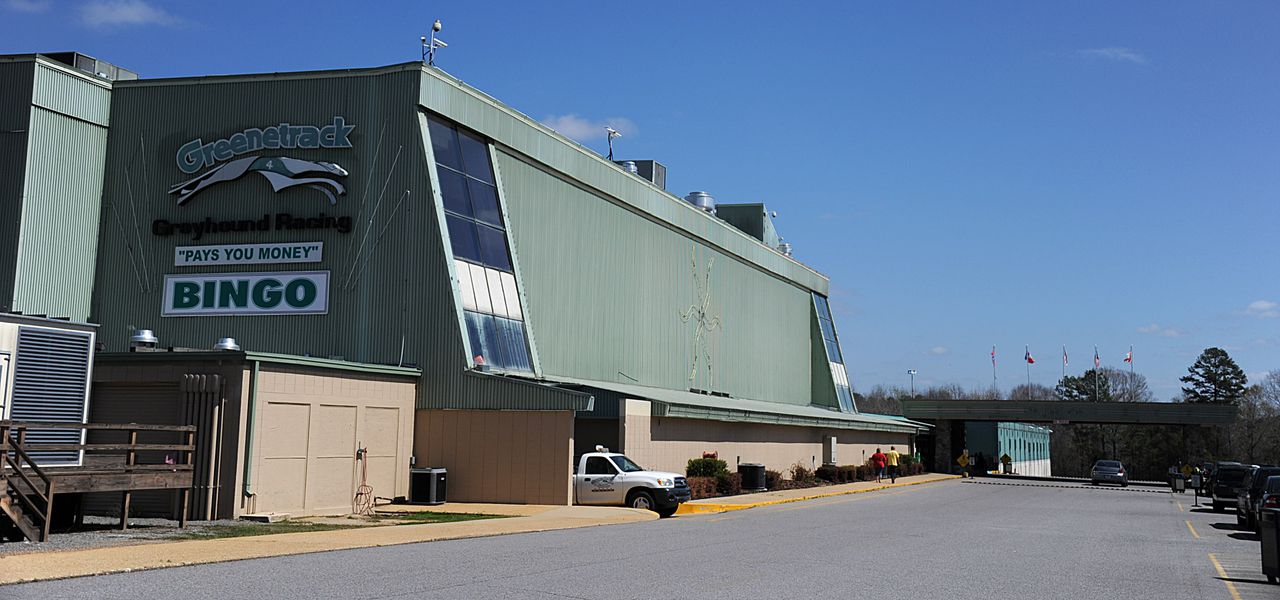Smith: Alabama casinos’ human shield tests Marshall’s resolve
This is an opinion column
After the Alabama Supreme Court ruled that the racing and “bingo” casino owed $76 million in unpaid taxes, Greenetrack shut its doors. Another opinion from the state supreme court affirmed that electronic bingo which plays conspicuously like a slot machine is not, in fact, bingo. Yet a little more than a month after closing its doors, Greenetrack is open for business again. Alabama has been here before. So have the casino operators. This isn’t even the first time Greenetrack has reopened after an unfavorable court ruling.
You can’t spend any time in Alabama without hearing “Greenetrack pays you money” or learning about the wild tales of gambling in the state.
More Columns from Cameron Smith:
From the Poarch Creek’s Wind Creek Casino to the small roadside slot machine operators that dot Alabama, the legal games played with gambling are every bit as entertaining as the “bingo.”
Just remember one rule: The house always wins.
When you enter any gambling establishment, they make money by winning much more often than they lose. They make so much money that it’s worth going toe to toe with a long line of Alabama’s attorneys general to keep the cash flowing.
Those attorneys general are gone. The casinos are not.
Attorney General Steve Marshall wants to change that. He’s got the law on his side, and he has plans to enforce it. Unfortunately, the machines have been seized before. The pending demise of illegal casinos has been declared. “Bingo” remains silently and quickly called in the Yellowhammer State.
Anyone with half a brain can tell the difference between bingo and a slot machine. In Alabama, the Supreme Court has, for years, maintained a six part test for folks who are particularly slow. Just let that sink in. Something a ten-year-old can explain requires the state’s highest court to get involved.
The Tuscaloosa Thread first reported Greenetrack’s resurrection, and one comment from casino CEO Luther Winn stood out:
“A lot of people, younger people, they’ve got kids in school and when the state of Alabama shut down Greenetrack, they still had tuition payments due, mortgage payments and car notes to pay,” Winn explained. “Re-opening means that Greene County, I’m hoping, can take a deep breath and people can depend on Greenetrack again for employment for years to come.”
The State of Alabama might be the hero before the Supreme Court and in the eyes of the law, but the law-breaking casinos are Robin Hood to their employees and most of the communities where they operate.
That’s the real problem with gambling in Alabama. It’s been here for at least as long as it’s been outlawed. By historic Alabama standards, the casino operators these days are downright civil.
Before Las Vegas was Sin City, U.S. Secretary of War Henry Stimson called Phenix City, Alabama “the wickedest city in America.” Gambling interests gorged themselves on traffic from Fort Benning so much that General George Patton, stationed there in 1940, threatened to level the place. Crime, corruption, and cards might have won the day but for the assassination of Albert Patterson, the Democratic primary winner in the state attorney general’s race, on June 18, 1954.
Alabama Gov. Gordon Persons sent in the National Guard to replace local law enforcement and raid gambling halls. After the dust settled, more than 80 people were convicted or pleaded guilty of charges related to Phenix City’s rampant criminal activity. Most notably, the man convicted of killing Patterson was the town’s Chief Deputy Sheriff Albert Fuller.
Gambling interests and local authorities are once again pitted against the state.
There’s no issue with the law. It’s about resolve. When the state comes after the livelihoods of entire communities, they aren’t about to go down without a fight. Telling someone that their job is part of an illegal operation doesn’t prevent the bills from showing up on their doorstep. As a result, Alabama’s casino operators have an incredibly powerful human shield even if the law isn’t on their side.
That’s why there’s been wiggle room, creative legal interpretations, and little desire on the part of state leaders to aggressively end illegal gambling.
A few folks in Montgomery still remember what happened to Patterson, and they’re not sure how far casino communities will go to protect everything that Winn mentions. If Marshall insists on enforcing the law as he should, he and the state will certainly find out.
Smith is a recovering political attorney with four boys, two dogs, and an extremely patient wife. He engages media, business, and policy through the Triptych Foundation and Triptych Media. Please direct outrage or agreement to [email protected] or @DCameronSmith on Twitter.
